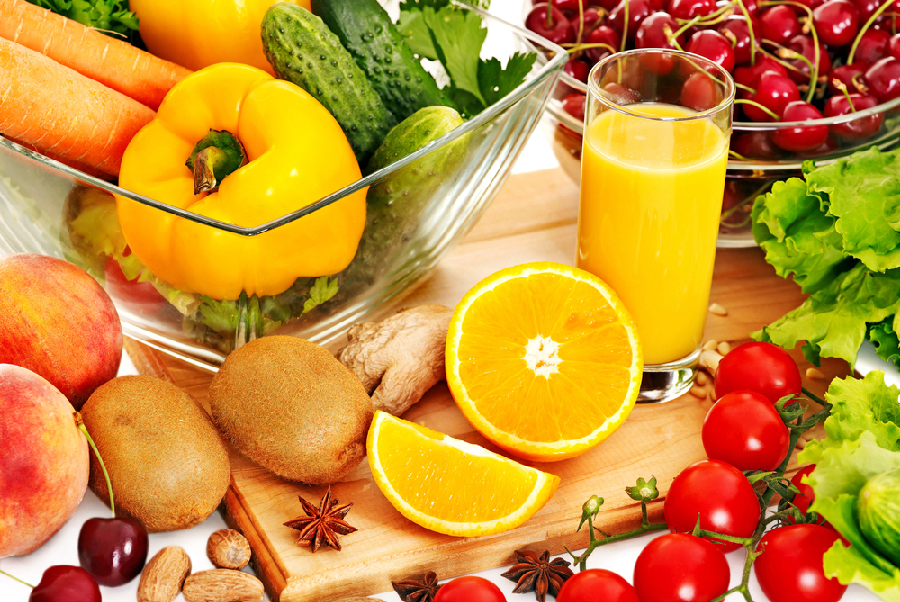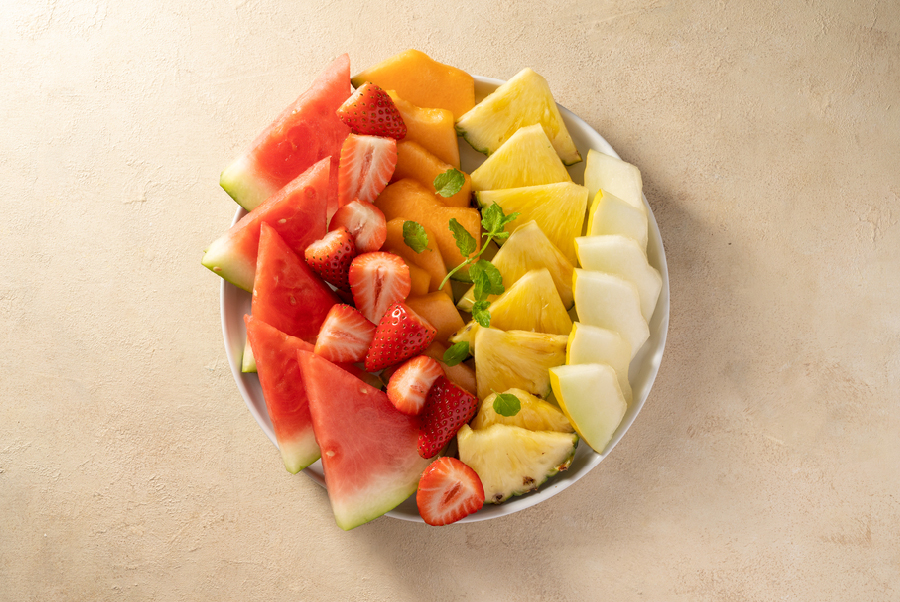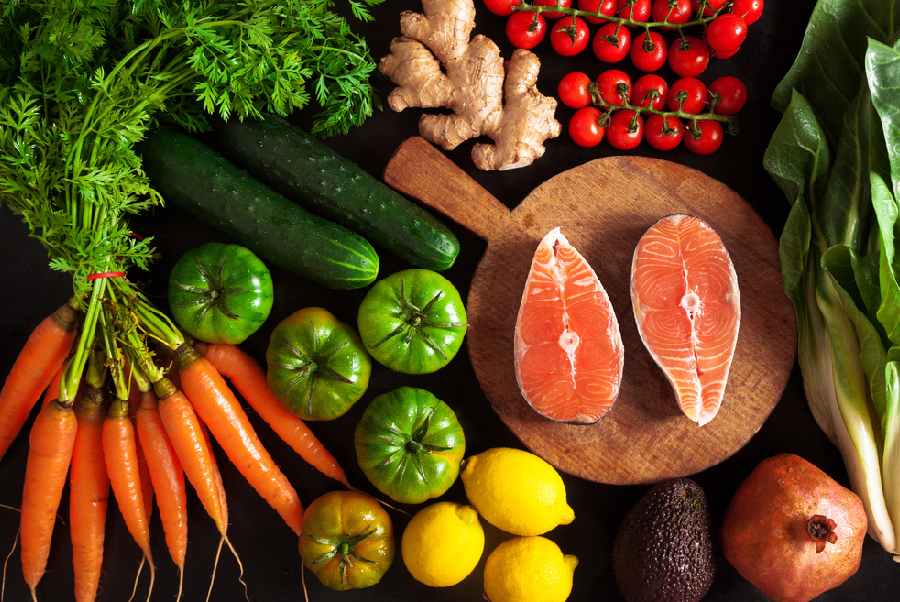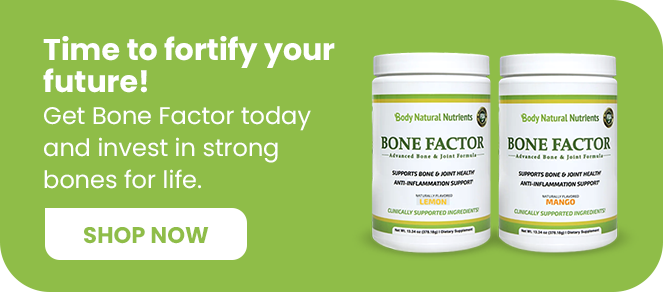When summer arrives, we often crave light and refreshing foods to help us beat the heat. This seasonal shift in our diet offers a golden opportunity to enhance our bone health naturally. Strong bones are essential for a robust and active life, and they play a crucial role in preventing osteoporosis and other bone-related ailments as we age. In this comprehensive guide, we’ll explore five summer foods that can significantly boost your bone health. These foods are packed with essential vitamins and minerals that are critical for maintaining bone density and strength.
The Importance of Bone Health
Why Bone Health Matters
Our bones form the framework of our body, providing structure, protecting vital organs, and enabling movement. They also act as a reservoir for essential minerals like calcium and phosphorus. As we age, our bones can become less dense and more fragile, increasing the risk of fractures and conditions such as osteoporosis. According to the National Osteoporosis Foundation, an estimated 10 million Americans have osteoporosis, and 44 million have low bone density, putting them at increased risk of fractures.
Bone health is vital for overall well-being. Healthy bones support our body’s structure, facilitate movement, and protect our internal organs. They also store minerals that are crucial for various bodily functions. Poor bone health can lead to fractures, even from minor falls, and increase the risk of osteoporosis, a condition characterized by weak and brittle bones. Osteoporosis is often called the “silent disease” because bone loss occurs without symptoms, leading to increased fracture risk, especially in older adults.
How Diet Impacts Bone Health
Diet plays a crucial role in maintaining and improving bone health. Consuming foods rich in calcium, vitamin D, magnesium, and other bone-supporting nutrients can help enhance bone density and strength. A balanced diet, combined with regular physical activity, can significantly reduce the risk of bone-related diseases.
Calcium and vitamin D are the cornerstone nutrients for bone health. Calcium is a primary building block of bone tissue, while vitamin D enhances calcium absorption and bone growth. Other nutrients like vitamin K, magnesium, and potassium also play essential roles. Vitamin K is necessary for bone mineralization, magnesium aids in converting vitamin D to its active form, and potassium helps neutralize bone-depleting acids in the body.
Top 5 Summer Foods for Bone Health
1. Leafy Greens: The Calcium Powerhouse

Leafy greens such as kale, spinach, and collard greens are among the best summer foods for bone health. These vegetables are low in calories but packed with calcium, magnesium, and vitamin K, all of which are essential for bone health.
- Kale: One cup of cooked kale provides about 179 mg of calcium and is rich in vitamin K, which helps in calcium absorption.
- Spinach: Contains around 245 mg of calcium per cup and offers magnesium, crucial for bone structure.
- Collard Greens: A single serving can provide up to 266 mg of calcium, more than a glass of milk.
Why They Are Important: Calcium is the most critical mineral for bone health, essential for the formation and maintenance of bones. Vitamin K works in tandem with calcium to ensure its effective absorption into the bones rather than being deposited in the arteries. Magnesium aids in converting vitamin D into its active form, which then helps in calcium absorption. Leafy greens also contain antioxidants and phytochemicals that reduce inflammation and oxidative stress, protecting bone cells from damage.
How to Incorporate: Add leafy greens to salads, and smoothies, or sauté them as a side dish. They can also be included in summer soups or casseroles. For a refreshing summer meal, try a kale and quinoa salad with a citrus dressing or blend spinach into a green smoothie with tropical fruits like pineapple and mango.
2. Berries: Rich in Antioxidants and Bone-Boosting Nutrients

Berries like strawberries, blueberries, and raspberries are not just delicious summer treats; they also pack a powerful punch of nutrients that support bone health.
- Strawberries: High in vitamin C, which is vital for collagen formation in bones.
- Blueberries: Contain antioxidants that protect bone cells from damage and provide vitamin K.
- Raspberries: Rich in fiber, vitamins, and minerals that contribute to bone health.
Why They Are Important: Vitamin C is essential for the production of collagen, a protein that provides a scaffold for bones. Antioxidants found in berries help protect bone cells from oxidative stress, which can weaken bones over time. The high fiber content aids in the absorption of calcium and other minerals. Berries also contain phytochemicals like anthocyanins and flavonoids with anti-inflammatory properties, helping reduce inflammation that contributes to bone loss.
How to Incorporate: Berries can be enjoyed on their own, added to cereals, mixed into smoothies, or used as a topping for yogurt and desserts. They also make a refreshing addition to summer salads. For a bone-boosting treat, try a berry parfait with Greek yogurt and a sprinkle of chia seeds.
3. Fortified Dairy Alternatives: Essential for Lactose-Intolerant Individuals
For those who are lactose intolerant or prefer a vegan diet, fortified dairy alternatives like almond milk, soy milk, and tofu are excellent sources of bone-supporting nutrients.
- Almond Milk: Fortified almond milk can provide up to 45% of the daily calcium requirement in one serving.
- Soy Milk: Offers a significant amount of calcium and is often fortified with vitamin D.
- Tofu: One cup of fortified tofu can provide up to 861 mg of calcium, which is nearly 90% of the daily recommended intake.
Why They Are Important: Fortified dairy alternatives are enriched with calcium and vitamin D, crucial for bone health. Vitamin D helps the body absorb calcium more efficiently. These alternatives are particularly beneficial for those who cannot consume regular dairy products. Dairy alternatives are also free from lactose, making them suitable for individuals who are lactose intolerant or have dairy allergies. Many of these products are fortified with additional vitamins and minerals, such as vitamin B12 and riboflavin, important for overall health.
How to Incorporate: Use these alternatives in your morning cereal, smoothies, or as a base for summer desserts. Tofu can be added to stir-fries, salads, or grilled for a protein-rich addition to meals. For a refreshing summer drink, blend almond milk with fresh berries and a touch of honey.
4. Fatty Fish: A Natural Source of Vitamin D
Fatty fish such as salmon, mackerel, and sardines are excellent sources of vitamin D and omega-3 fatty acids, both of which are vital for bone health.
- Salmon: Provides approximately 600–1000 IU of vitamin D per serving, covering up to 125% of the daily requirement.
- Mackerel: Contains about 360 IU of vitamin D per serving.
- Sardines: Packed with calcium and vitamin D, with one serving providing around 40% of the daily calcium requirement.
Why They Are Important: Vitamin D helps the body absorb calcium from the gut into the bloodstream. Omega-3 fatty acids found in fatty fish reduce inflammation, which can help protect bones from weakening. These nutrients work together to enhance bone density and reduce the risk of fractures. Fatty fish also contain other essential nutrients like protein, crucial for bone repair and regeneration. The omega-3 fatty acids in these fish help reduce bone breakdown and increase bone formation. Additionally, fish-like sardines are consumed with their bones, providing an excellent source of dietary calcium.
How to Incorporate: Enjoy these fish grilled, baked, or in salads. They make a great addition to summer barbecues or light dinners. Canned sardines can also be a quick and easy snack or a topping for salads and crackers. For a summer-inspired dish, try grilled salmon with a citrus glaze or a mackerel salad with fresh greens and avocado.
5. Nuts and Seeds: Packed with Bone-Building Minerals
Nuts and seeds such as almonds, chia seeds, and flaxseeds are rich in bone-building minerals like calcium, magnesium, and phosphorus.
- Almonds: One ounce provides 76 mg of calcium and is also a good source of magnesium.
- Chia Seeds: Two tablespoons contain 179 mg of calcium and a good amount of omega-3 fatty acids.
- Flaxseeds: Rich in omega-3s and provide a small amount of calcium and magnesium.
Why They Are Important: These minerals are essential for maintaining bone structure and density. Magnesium helps to convert vitamin D into its active form, necessary for calcium absorption. Phosphorus works alongside calcium to build strong bones and teeth. Nuts and seeds also contain healthy fats, important for the absorption of fat-soluble vitamins like vitamin D. Additionally, they provide plant-based protein, essential for bone growth and repair. The fiber in nuts and seeds helps maintain a healthy gut, improving nutrient absorption and overall bone health.
How to Incorporate: Nuts and seeds can be added to salads, yogurt, and oatmeal, or enjoyed as a snack. They also make a great addition to smoothies and baked goods. For a delicious summer treat, try chia seed pudding with almond milk and fresh berries or a trail mix with almonds, pumpkin seeds, and dried fruit.
Practical Tips for Enhancing Bone Health
Balanced Diet and Regular Exercise
While focusing on specific bone-healthy foods is beneficial, maintaining an overall balanced diet is essential. Incorporating a variety of fruits, vegetables, whole grains, and lean proteins ensures you get a wide range of nutrients. Regular weight-bearing and resistance exercises, such as walking, running, and lifting weights, are also crucial for maintaining bone density.
Mindful Sun Exposure
Vitamin D, often called the “sunshine vitamin,” is synthesized in the skin in response to sunlight. Spending 10-30 minutes in the sun a few times a week can help maintain adequate vitamin D levels, essential for calcium absorption and bone health. It’s important to balance sun exposure with skin protection to prevent damage and reduce the risk of skin cancer.
Avoiding Bone-Damaging Habits
Certain lifestyle choices can negatively impact bone health. Smoking and excessive alcohol consumption can lead to bone loss and increase the risk of fractures. Reducing salt intake and avoiding excessive caffeine can also help maintain calcium levels in the body, as both can increase calcium excretion.
Staying Hydrated
Adequate hydration is crucial for overall health, including bone health. Water helps keep joints lubricated and supports the flow of nutrients to bone tissues. During the hot summer months, it’s especially important to stay hydrated by drinking plenty of water and consuming water-rich foods like fruits and vegetables.
Frequently Asked Questions (FAQs)
1. How much calcium do I need daily for bone health?
Adults typically need about 1,000 mg of calcium per day. Women over 50 and men over 70 should aim for 1,200 mg daily to help maintain bone density and prevent osteoporosis.
2. Can I get enough vitamin D from food alone?
While it’s possible to get some vitamin D from foods like fatty fish, fortified dairy products, and eggs, most people need additional vitamin D from sunlight exposure or supplements to meet their daily requirements.
3. Are there any foods I should avoid to maintain good bone health?
Foods high in sodium, caffeine, and alcohol can negatively impact bone health by increasing calcium loss. It’s best to limit these and focus on a balanced diet rich in bone-supporting nutrients.
4. How does physical activity contribute to bone health?
Regular weight-bearing and resistance exercises help maintain bone density by stimulating bone formation and slowing down bone loss. Activities like walking, running, and weight lifting are particularly beneficial.
5. What are some non-dairy sources of calcium?
Non-dairy sources of calcium include leafy greens, fortified plant milk, tofu, almonds, and chia seeds. These are excellent options for those who are lactose intolerant or prefer a vegan diet.
6. Can too much calcium be harmful?
Excessive calcium intake, typically from supplements, can lead to kidney stones and interfere with the absorption of other essential minerals. It’s important to balance calcium intake from dietary sources and consult a healthcare professional before taking supplements.
7. How can I check if I have good bone health?
Bone density can be measured using a bone mineral density (BMD) test, often recommended for women over 65 and men over 70, or earlier if there are risk factors for osteoporosis.
Conclusion
Incorporating these five summer foods into your diet can significantly boost your bone health naturally. These foods are not only delicious and refreshing but also packed with essential nutrients that support strong and healthy bones. By making these foods a regular part of your summer meals, you can enjoy the season while taking important steps toward maintaining and improving your bone health.
Summer is a perfect time to focus on your health and make dietary choices that can have lasting benefits. Remember that while diet plays a significant role in bone health, it is one part of a larger picture that includes regular physical activity, sun exposure, and healthy lifestyle choices. By taking a holistic approach, you can support your bones and enjoy a healthier, more active life.



